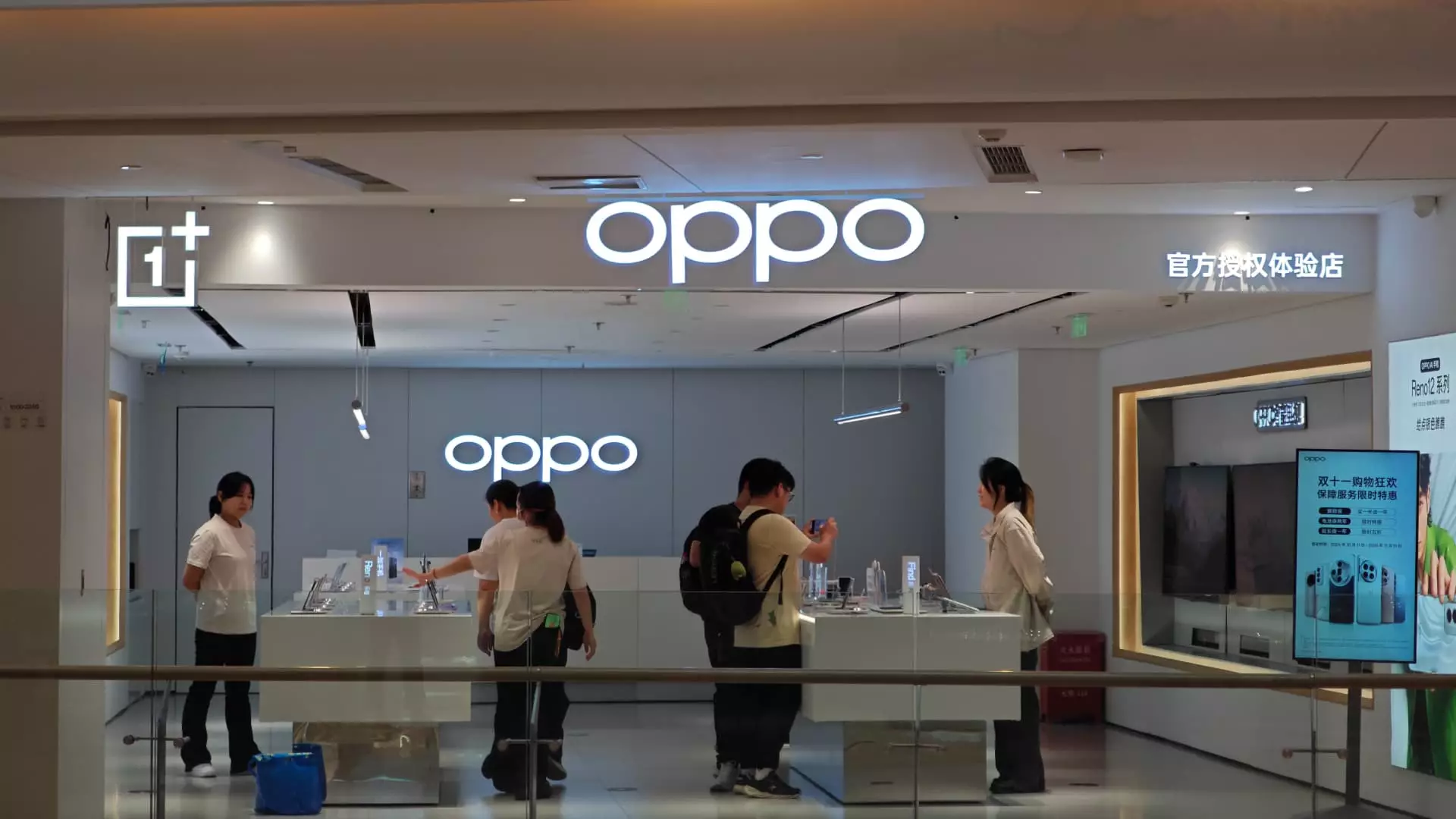In a rapidly evolving technological landscape, artificial intelligence (AI) is no longer a futuristic concept; it’s becoming an integral aspect of modern smartphones. Chinese smartphone manufacturer Oppo finds itself at the forefront of this transformation, engaging in weekly discussions with industry giants like Google and Microsoft to enhance the integration of AI in its products. As Oppo gears up for the global launch of its flagship smartphone, the urgency and significance of these partnerships underscore a broader trend in the industry: the quest for innovative AI applications that can redefine consumer experiences.
The emergence of generative AI—a form of technology that generates human-like responses based on prompts—has sparked intense competition among major players in the tech sector. Companies ranging from Apple to Honeywell are racing to unlock the capabilities of this technology, which promises to revolutionize how users interact with devices. By collaborating closely with established AI leaders, Oppo aims to tailor its offerings to meet the specific needs and pain points of consumers, a strategy articulated by Billy Zhang, president of Oppo’s overseas market, sales and services. His assertion that consumer needs drive the company’s AI initiatives reflects a keen understanding of market dynamics.
Despite the intense competition, Oppo has managed to carve out a substantial presence in the global smartphone market. According to Canalys, the company ranked fourth in terms of shipments in the third quarter, accounting for nine percent of global smartphone sales. With approximately 60% of its revenue coming from overseas markets like Southeast Asia and Europe, Oppo is aggressively pursuing international expansion, though its presence in the U.S. remains limited for the time being.
Oppo’s success can be attributed not only to its commitment to innovation but also to its ability to adapt to changing market conditions. The company’s focus on integrating AI functionalities, such as predictive text, content generation, and enhanced photo editing, into its devices positions it competitively against established brands like Samsung and Apple.
Looking ahead, Oppo is set to roll out its flagship smartphone equipped with various AI-enhanced features, sourced through partnerships with tech juggernauts like Google and Microsoft. These features—ranging from AI writing tools to advanced content generation capabilities—are expected to elevate user experience significantly. However, it remains to be seen how these enhancements will manifest and to what extent they can truly compete with existing technologies in the market.
Oppo has ambitious plans, announcing its intention to integrate generative AI into a staggering 50 million devices by the end of the year. This initiative highlights the company’s commitment to embracing AI as a crucial innovation driver. Interestingly, Oppo has been developing its own AI models since 2020, demonstrating a dual strategy of collaboration and independent development. The establishment of an AI research center earlier this year further showcases its determination to lead in this space.
Beyond consumer-facing applications, Oppo is also incorporating AI solutions into its manufacturing processes. The company has already automated around eight percent of its workforce in entry-level smartphone production, reallocating these employees to work on more advanced devices. This move illustrates not only increased efficiency but also a strategic shift toward higher-value products. According to Danny Du, Oppo’s director of manufacturing management, the digitalization of manufacturing processes has enabled a dramatic reduction in production costs—by nearly 40% over three years—and improved response times to market demands.
Moreover, the integration of AI into factory operations extends beyond mere cost savings. As Oppo begins to roll out a digital management system across factories in various countries, from India to Brazil, these technological advancements facilitate scalability and adaptability in production. This rapid evolution demonstrates how deeply AI can permeate not only the consumer tech sphere but also the industrial sector.
Oppo’s aggressive push into the realm of artificial intelligence represents a pivotal moment in the smartphone industry. As competition heats up and consumer expectations continue to evolve, the integration of AI is no longer optional but essential for survival. With industry leaders rallying around the potential of AI to transform user experience and operational efficiency, companies like Oppo are positioned not just to adapt but to thrive in this new environment. As they continue to innovate and transform their strategies, the impact of AI will likely define the future of personal technology and consumer electronics for years to come.

